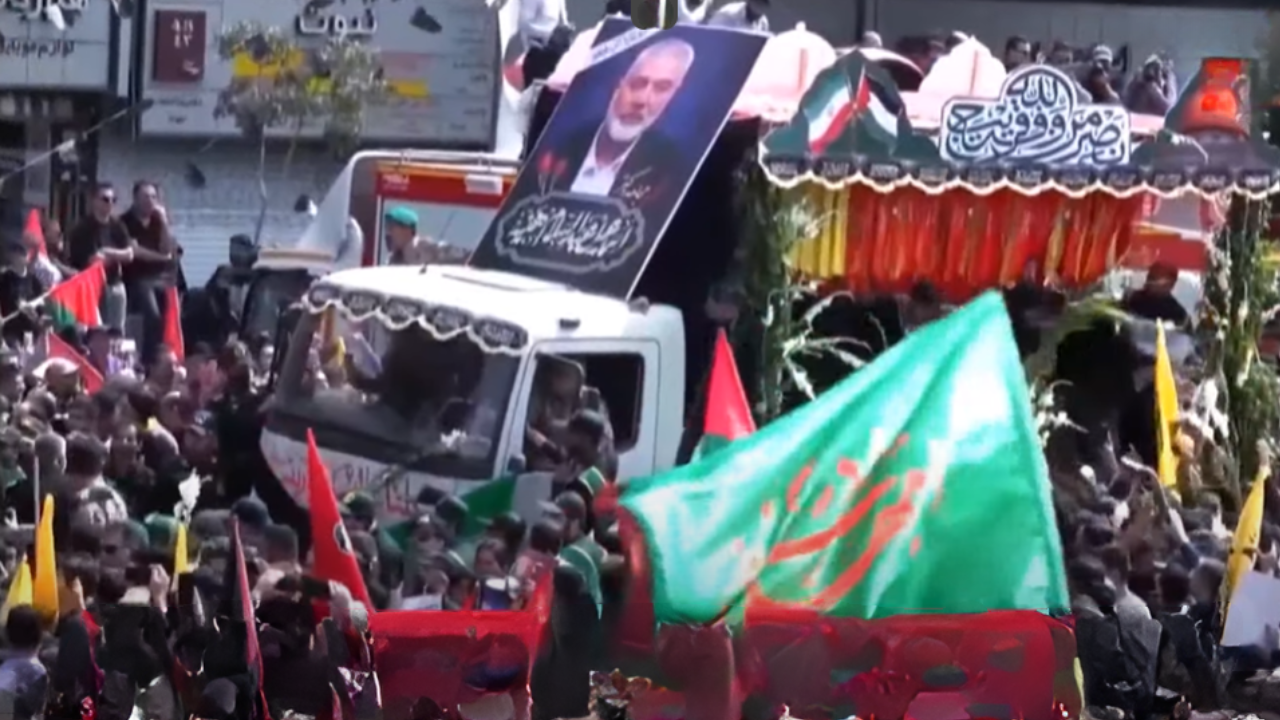Biden was briefed that U.S. officials are unsure about the date and specifics of the Iran attack israel.
lran attack israel

Three U.S. sources told Axios that President Biden and Vice President Harris were informed on Monday by their national security staff that it is still uncertain when Iran and Hezbollah are likely to conduct a strike against Israel and what the attack may include in detail.
Why this matters
Officials from the Biden administration say they are preparing to counter potential attacks and applying diplomatic pressure on Iran and Hezbollah in an effort to lessen their retaliation for Israel’s killing of Hezbollah’s top military commander in Beirut and Ismail Haniyeh, the political leader of Hamas, in Tehran.
Motivating the news:
According to Axios, Secretary of State Antony Blinken warned his G7 colleague on Sunday that Iran and Hezbollah may launch an attack on Israel within the next 24 to 48 hours.
- However, U.S. sources indicated that the assessment was more nuanced during Biden and Harris’ Monday discussion with the National Security Council in the White House Situation Room meeting.
- According to the officials, Biden and Harris were informed that Hezbollah and Iran, along with a few of its other proxies, are expected to launch two rounds of attacks.
According to the authorities, U.S. intelligence is still unsure about the identity of the first attacker and the nature of their attack.
- According to a U.S. official, intelligence suggests that Iran and Hezbollah are still figuring out their exact priorities and that their reaction is still a “work in progress”.
Current situation:
The White House reports that Biden and Harris were informed during the Situation Room meeting about the multiple American soldiers who suffered critical injuries on Monday as a result of a rocket strike on the Al Asad Airbase in Iraq by pro-Iranian militias.
- According to a U.S. official, increasing tensions in the area are causing pro-Iranian militias to feel less constrained by Iran to attack American soldiers than they did in recent months. The Pentagon anticipates additional attacks by these militias against U.S. personnel in the region in the coming days.
In the background:
According to the White House, Biden and Harris were also informed about ongoing diplomatic efforts to reduce tensions in the region and conclude the agreement on the truce in Gaza and the release of the hostages.
- Blinken requested that Hezbollah and Iran defuse their tensions during a Monday conversation with Mohammed Bin Abdul Rahman al-Thani, the prime minister of Qatar. The source with knowledge of the call added that he emphasized how important Biden still finds the agreement on the truce and hostage situation in Gaza, in which Qatar is a major mediator.
- The Biden administration sent a message to Iran that the United States will support Israel in the event of an assault, according to State Department spokesperson Matthew Miller, who gave a briefing to media on Monday.
At the conclusion of his discussion with Australia’s foreign minister on Monday, Blinken stated that the Middle East’s situation is critical.
- “It is imperative that none of the parties escalate. To reduce tensions, both sides must act, Blinken added.
- He claimed that a truce and hostage agreement for Gaza would reduce tensions and stop the fighting from getting worse.
- In the coming hours and days, it is crucial that all parties make the correct decisions,” he stated.
Calling Israeli Foreign Minister Israel Katz on Monday, Hungarian Foreign Minister Péter Szijjártó revealed that, according to senior Israeli sources, Iran had earlier on Monday warned Hungary that it would strike Israel in retaliation for Haniyeh’s killing in Tehran.
What to observe:
According to U.S. sources, Biden instructed his team to coordinate the defense effort with Israel as closely as possible in order to avert a potential assault at the Situation Room meeting.
- On Monday, Gen. Michael Kurilla, the head of the US military central command, traveled to Israel and held meetings with Minister of Defense Yoav Gallant and Gen.
- According to the IDF, Kurilla and Halevi carried out a collaborative situational assessment and talked about “joint preparations in the region, as part of the response to threats in the Middle East.”
- Sergei Shoigu, the head of Russia’s national security council, met with military and security officials in Tehran concurrently with Kurilla’s meeting in Tel Aviv to talk about the tensions in the region.









